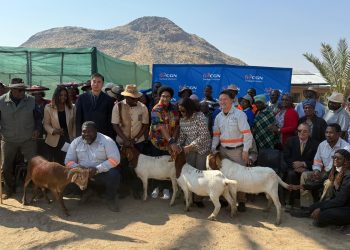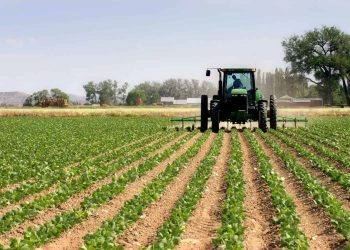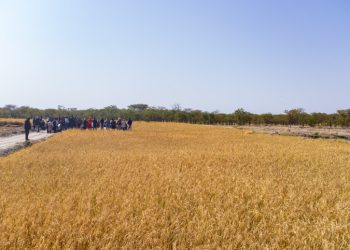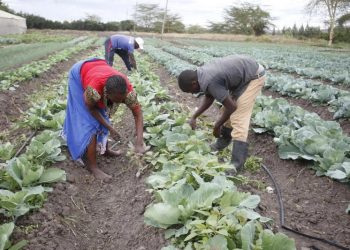
The Minister of Agriculture, Water and Land Reform of Namibia, Calle Schlettwein, says the adverse effects of drought on nature and farming are manageable.
Schlettwein acknowledged the negative impact of droughts on water availability for production and grazing, leading to a slowing growth in agriculture.Â
However, he assured the public that the drought situation was manageable and outlined strategic measures that are being implemented to mitigate the effects and maintain a steady growth trajectory.
“We already see a reduction in prices, meat prices because of too much off-take and lower demand. Therefore, it’s an instability between demand and supply. We supply too much, and prices drop. But we hope that it will recover after June or July or in July. That is a cyclical event that always happens like that,” he said.Â
The Minister emphasised that despite the challenges posed by the drought, the government had rolled out various drought assistance programmes, including subsidies for the transportation of cattle to abattoirs or grazing grounds.
“We have rolled out drought assistance with regard to the transport of cattle from farms to abattoirs or to grazing grounds. We have a further subsidy rolled out. So we are trying to mitigate the effect as much as possible so that we do not stop growing. We want to maintain a growth line, but the road makes it a little bit more difficult,” he said.
Schlettwein urged farmers to stay vigilant and be aware of the condition of their grazing lands.
“Farmers can supplement grazing with fodder or supplements and manage their animal population accordingly. By doing so, they could avoid reaching a critical threshold where drastic measures, such as mass sell-offs, would lead to a significant drop in prices,” he said.
With a comprehensive understanding of the challenges faced by the agricultural sector, Minister Schlettwein conveyed the government’s commitment to mitigating the effects of the drought and supporting farmers during these challenging times.
He noted that the Ministry’s strategic measures and assistance programmes are geared toward maintaining a growth trajectory in agriculture and ensuring food security for the nation.
This comes as the Namibia National Farmers Union (NNFU) earlier this year urged farmers to start preparing for the dry season, warning that drought is imminent as the country received insufficient rainfall.
The NNFU noted that since the previous drought that hit the country between the 2013 and 2019 seasons, rainfall activities have been erratic.Â
Experts predict that Namibia’s climate will become hotter and drier in the next five decades, with greater variability in rainfall.
“No one was expecting this, farmers should be alert and start making necessary preparations because drought is heading our way. It is only prudent to inform our members as many still look reluctant thinking all is well, but it is not,†NNFU’s Acting President Amos Kapi said.Â
Similarly, the Agricultural Bank of Namibia (Agribank) warned that poor rainfall performance since the start of the last could negatively impact food security, agriculture, rangeland rehabilitation, and livestock production.
The bank called for a contingency plan to address the potential threat to food security, agriculture, rangeland rehabilitation, and livestock production.
“It is critical that the government and other stakeholders come up with measures to ensure that the agriculture sector remains resilient and that food security is not compromised,” said the bank.
Â
Â
Â
Â
Â
Â
Â
Â











